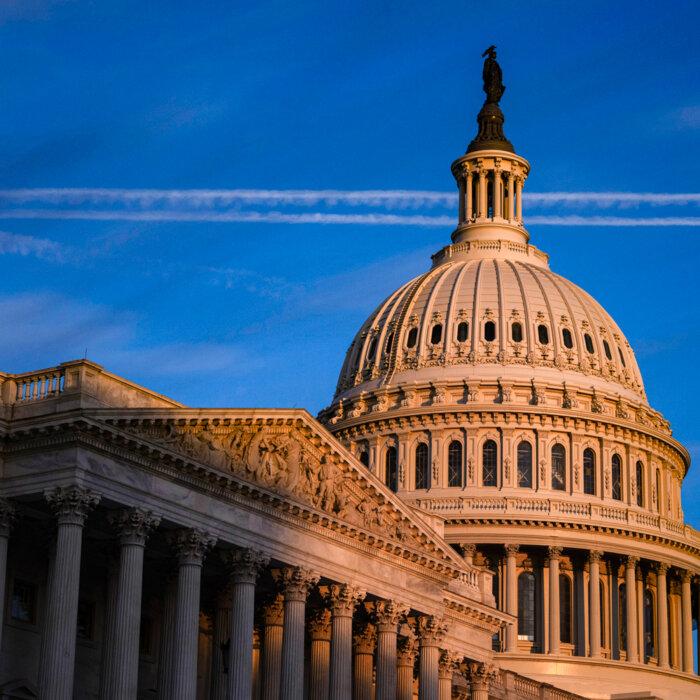We’ve entered the final phase of the 2024 election cycle, which has been marked by twists and turns.
The Republican nominee, former President Donald Trump, has faced two assassination attempts, one of which only failed by millimeters. He’s also embroiled in a series of legal battles, with mixed results and unclear outcomes ahead.
In the Democrat camp, the nation was stunned by President Joe Biden’s sudden exit from the race after a rough debate performance in June, and the subsequent pick of Vice President Kamala Harris as the nominee.
What does the path forward look like?
Sept. 20: Early Voting Begins
Some states have begun printing and sending out ballots, well ahead of Election Day on Nov. 5.
Virginia, Minnesota, and South Dakota started early voting on Sept. 20; Mississippi is next on Sept. 23, with other states beginning throughout October.
Eight states and the District of Columbia will automatically send out mail-in ballots; elsewhere they need to be requested, and in some states, the voter needs to give a reason for not voting in-person.
Check your state’s requirements and procedures here.
Learn about how to mail in your ballot here.
Oct. 1: VP Candidate Debate
Trump and Harris had their debate on Sept. 10, and it appears there won’t be a second round. On Oct. 1, the vice presidential candidates will have their turn.
Republican nominee Sen. JD Vance (R-Ohio), author of “Hillbilly Elegy,” will face Minnesota governor and 12-year congressional veteran Tim Walz. The time and venue are undetermined, but the event will be hosted and broadcast by CBS.
“CBS Evening News” anchor Norah O’Donnell and CBS News chief correspondent Margaret Brennan will moderate. It is unclear what impact, if any, the debate will have on the final result.
Nov. 5: Election Day
Election Day is always on the Tuesday after the first Monday in November; which this year is Nov. 5.
Because of a rise in mail-in voting, it’s possible a winner won’t be declared on election night. The 2020 election was held on Nov. 3, but most media outlets didn’t declare the win for Joe Biden until four days later, as mail-in ballots continued to trickle in past Election Day.
The race is predicted to be close, and there remains the chance that the election results will be contested.
Nov. 26: Trump NY Trial Sentencing
Trump still has pending legal issues, not least of which relates to his May 31 conviction in his New York business records trial. Judge Juan Merchan originally set the sentencing date for July 11, but postponed it to Sept. 18, pending a series of legal motions relating to questions of Trump’s immunity and Merchan’s recusal from the case.
Merchan then pushed the date further back to Nov. 26, “to avoid any appearance—however unwarranted—that the proceeding has been affected by or seeks to affect the approaching Presidential election.” Trump’s lawyers have asked for a halt to the proceedings to allow time for appeals.
Trump’s Georgia election interference case is on hold while an appeals court decides if District Attorney Fani Willis will be allowed to continue with the case. That hearing is set for Dec. 5.
All these legal issues will play out in the aftermath of what is expected to be a hotly contested presidential race—not to mention the congressional races and ballot measures, all to be decided on Nov. 5.

Dec. 11: Electors Are Certified
Six days before the electors meet to cast their votes, each state’s governor will have to submit certifications naming who will cast the final, binding votes for the president. Each state will draw up two lists of electors, one pledged to Harris and the other to Trump, and following the general election the electors will cast their votes for the candidate who won their state.
The states are given two electors for its senators, and one of each representative it has in the House. California, the state with the most electoral college votes, has a total of 54, while Wyoming has the least with three.
Dec. 17: Electors Vote
Electoral colleges meet to vote on the first Tuesday after the second Wednesday in December; this year that’s Dec. 17. The meeting place is decided by state law, but is usually at each state Capitol.
There is always the possibility of “faithless electors” who choose to vote for a candidate other than the one they’re pledged to, but that’s rare. In some states, the law simply negates their votes, or imposes a fine. This happened in 2016 when three electors from Washington chose to vote for Colin Powell instead of Hillary Clinton.
Jan. 3: Congressional Year begins
At noon on Jan. 3, 2025, the congressional year begins with the swearing in of new members, and a roll call. Officials for each chamber, such as the sergeant at arms and chaplain, are elected.
In the House, the speaker, who is second in line of succession for the presidency, will be elected, House members will also debate and vote on House Rules for the upcoming term.

Jan. 6: Congress Electoral Count
On Jan. 6, 2025, Congress will officially count the electoral votes sent by each state. As the current vice president, Harris will preside over this process.
If neither candidate has received the required 270 electoral votes, Congress steps in to decide the election. The House votes for the president, with each state getting one vote, so a majority of 26 wins.
It is expected that the representatives would vote along party lines, but each state submits one vote “en bloc,” as a group. This means if 10 New York representatives support Trump, and 18 support Harris, Harris would receive New York’s single vote.
In the same scenario, the Senate picks the vice president. Each senator gets one vote, so it takes 51 to clinch the win for vice president.
Jan. 20: The Inauguration
On Monday, Jan. 20, 2025, the vice president will be sworn in, promising to “support and defend the Constitution of the United States against all enemies, foreign and domestic.”
Next, the president will take the oath of office, promising that he or she will “faithfully execute the Office of President of the United States, and will to the best of my ability, preserve, protect and defend the Constitution of the United States.”




